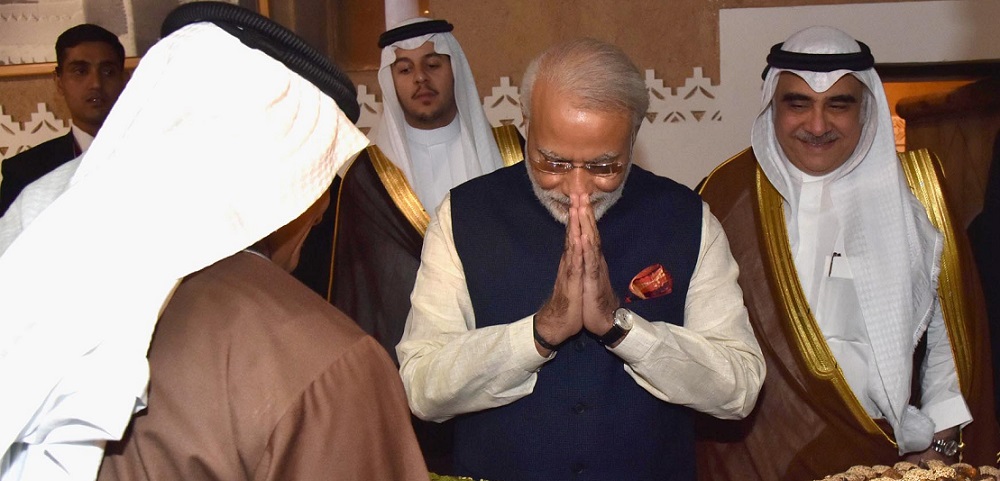Narendra Modi, the prime minister of India who assumed office in 2014, has frequently expressed the New Delhi's will to expand presence in West Asia region. To this end, the Indian leader since initiating his work as a premier has laid down long-term plans that will allow the country have political, economic, and security influence in the significant region, a move the Indian leaders hope will materialize New Delhi’s interests in West Asia and help it rise as a strategic power in the region just beside other powers.
Introducing such a strategy is crucial because India can improve its position on the global stage using the West Asia launching pad. Moreover, this policy is significant because the speculations are rising about possible US reduction of presence in West Asia, something that will open the way for other sides, including India, to take a role.
The Indian West Asia presence is driven by two aims: the first is New Delhi’s need for oil and gas of the region as it heads to develop more and more as an industrial hub globally. Second push for such an Indian approach is that it can find markets for its technologic products and software industry in the wealthy regional countries. Up to 2015, India's trade with the West Asian nations touched the $200 billion. But in the eyes of PM Modi this was never enough, so he struggles to draw up ambitious plans for much greater trade volumes with the regional nations.
But the economic interests are not the only drives bringing India to the region. New Delhi’s leaders seek entry to more strategic areas with the regional nations. Possible American withdrawal from West Asia can embolden the military and security presence of India in the region. This, in turn, will pave the way for broader cooperation in a set of areas including security, arms deals, and holding joint military drills.
Politically, Pakistan's rejection of Saudi Arabian calls to assist the war against Yemen through direct intervention appears to have built the grounds for India to expand influence regionally. This will bring New Delhi, a rival of Islamabad, closer to the key regional actors and this will apparently challenge Pakistan’s regional clout. India’s expansion to West Asia can also challenge the role of China, India’s rival and strategic partnership of Pakistan.
Adoption of such a strategy looks quite usefully paves the way for future Indian measures, especially that New Delhi has always avoided military threats or imposing any sanctions against any regional party as it insists on a no-intervention policy.
But Modi's record of clamping down on the Muslims of the country challenges all these efforts and make it difficult for him to easily organize relations with Muslim countries. However, the analysts suggest that a profit-seeking record of the Arab regimes of the region shows that they put their military and economic interests first rather than protection of Muslim minorities in other countries. So they argue that it is unlikely that Indian anti-Muslim crackdown will present a challenge to the two sides' ties.
On top of this, due to unclear and even erratic Trump’s policies in West Asia, the regional countries are eyeing diversification of their relations and getting along with other powers such as Britain, China, and India to make sure that their economic and security interests will be guaranteed under a multi-sided cover of allies.
Although India’s presence will see a greater boost in West Asia in an array of areas, it does not appear New Delhi can take on and equal other powers when it comes to wide-ranging influence since it lacks a historical background of presence in the region, strength to rival other international powers, and prestige to lead massive military and security missions in the region. So energy and trade might be the only areas that will shape a picture of India’s future presence in West Asia.
/298
source : Alwaght
Wednesday
26 April 2017
10:20:30 AM
826053

(AhlulBayt News Agency) - Narendra Modi, the prime minister of India who assumed office in 2014, has frequently expressed the New Delhi's will to expand presence in West Asia region.
